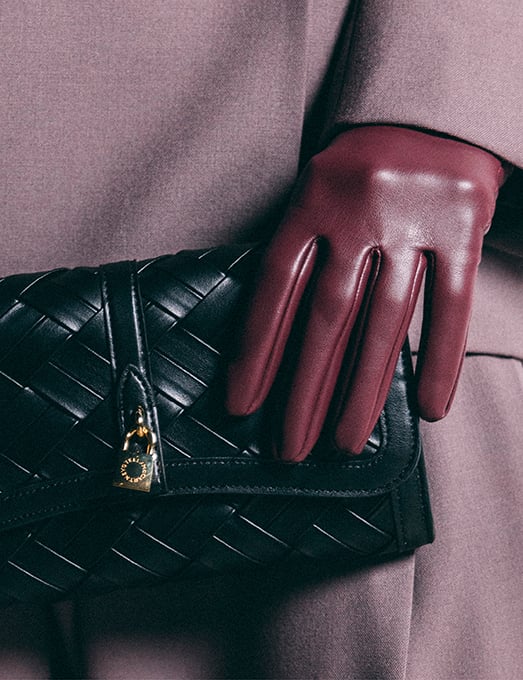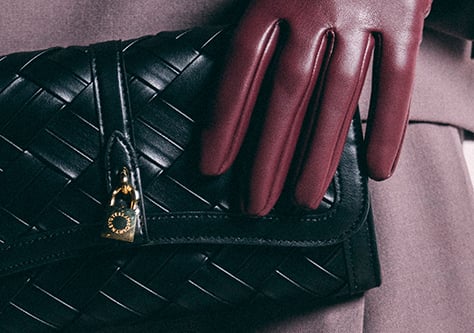Spring 2023: Our rewilding superstars
Made for an untamed Stella woman living in harmony with Mother Earth and her inner wild child, Spring 2023 is inspired by rewilding – a conservation theory rooted in reinstating natural processes and allowing ecosystems to rebalance themselves, as well as restoring wildlife without disturbance.
In this spirit of conservation, the collection is crafted from 85% conscious materials. Stella was inspired by the scientific work at Knepp Wildland, a pioneering rewilding project in West Sussex. It is living proof that by restoring ecosystems and beginning to reintroduce and establish species, we can rebuild Mother Earth’s natural support systems.
Stella is now working with Derek Gow, ecologist and reintroduction expert, to rewild her own countryside farm, inspiring our Spring 2023 collection with native British flora and fauna.
Meet the Stella rewilding superstars
Discover the native British and keystone species that inspired our Spring 2023 collection – key animals and plants that support and balance the ecosystem.
Hedgehogs
Hedgehogs have existed in Britain for at least half a million years but, as the UK is now one of the most nature-depleted nations in the world, they may not survive in our natural environment for much longer. Up to 75% of Britain’s rural hedgehogs have been lost in the last 20 years.
Native British rural hedgehogs have experienced a sharp decline, dropping by an average of 8.3% a year for the last two decades. In contrast, urban hedgehogs have a stable and recovering population, despite an estimated 167,000 hedgehogs being killed annually by vehicles. Classified as ‘Vulnerable’ to extinction according to the British Red List for Mammals, they are negatively impacted by changes in farming practices and the loss of habitat like hedgerows.
British birds
By protecting and, eventually, expanding woodlands across the country, we can increase carbon storage and sequestering, enabling a more diverse range of wildlife to establish. Key to this concept is bringing back missing species to rebuild the chain and relationships between species, including that with native birds.
Goldfinches, woodpeckers and kingfishers all appear as an all-over on stretch forest-friendly viscose jersey tops, trousers and a standout midi dress. They also appear as a heritage crest print on jersey t-shirts and a satin wrap mini skirt – a reminder of some of Mother Earth’s most beloved creatures.
Eurasian lynx
Currently extinct in the UK and recovering in number across Europe, the Eurasian lynx is what is known as a keystone species, lost to hunting. The woodland predator shapes the natural landscape by scenting its habitat – keeping smaller, prey species on the move and in turn preventing overgrazing. Lynx prey on roe deer, foxes, rabbits and birds, leaving carcasses that feed other species and fertilise soil, allowing trees and vegetation to establish.
Appearing as a hand-drawn illustration on matching shorts and shirting, we evolve the lynx’s feline spirit with equally wild tiger and ocelot prints this season. Tiger appears on a utility jacket and coordinating coat, consciously crafted from recycled materials in a durable and tactile jacquard fabric. Inspired by the unique markings of the ocelot, our Fur Free Fur coat features an all-over spotted print – made from responsibly sourced wool and recycled materials.
Fallow Deer
Fallow deer are the only deer in the UK with palmate antlers, otherwise identifiable by a distinctive inverted horseshoe shape on their rump and a stripe on their tail. Native to Asia, they are now widespread across Britain and architect the landscape through bark stripping, wallowing and seed dispersal – making them a major ecosystem engineer.
Fallow deer feed on grasses, herbs and young broadleaf trees, which fosters the natural regeneration of shrubs and trees. They were introduced by the Normans in the 11th Century and are now considered a naturalised species. Predator reintroduction would help to keep fallow deer populations and ecosystems balanced.
Roe deer
Native to Britain since the Mesolithic era, roe deer almost became extinct across the UK by the 18th century due to hunting. Today in 2022, roe deer are widespread and common. This woodland and shrubland deer helps to shape the natural landscape by creating discreet, small-scale disturbances in its habitat. By beating well-worn paths and disturbing soil underfoot, roe deer encourage invertebrates to the area and feed song thrushes and dunnock.
Spot the roe deer – and other British deer species – hand-drawn on forest-friendly viscose and silk pieces. This cotton twill top is decorated with a doodle print of animals being rewilded in England, including deer, hedgehogs, red squirrels, horses and hares.
Brown hare
The brown hare is a protected species in the UK under the Wildlife and Countryside Act and is named a Priority Species under the Post-2010 Biodiversity Framework. Introduced by the Romans, it is considered naturalised in Britain – grazing on vegetation and the bark of young trees in grasslands and at woodland edges.
Ecosystem imbalances have led to larger fox populations in the countryside, causing hare populations to decline. Despite being widespread, habitat loss and changes in agricultural practices have driven a sharp decline in the brown hare population.
Native wildflowers, badgers, squirrels and hedgehogs
A rewilded garden or farm can offer plenty for the wider ecosystem: boost biodiversity, absorb carbon, support local species and help to connect with nature too. Letting grass grow and fallen leaves decay creates a comfortable habitat for insects and hedgehogs, while planting wildflowers provides year-round nectar and pollen for all-essential bumblebees.
Encouraging natural habitats in surrounding woodland and open spaces supports the regeneration of these natural areas. This concept is realised on hand-stitched floral crochet dresses and screen-printed silk tops and shorts, as well as hand-drawn British wildflower prints on organic cotton jean jackets and denim trousers.







